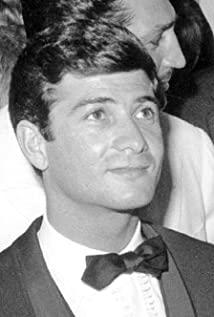Pascal said: "Rohmer's films do not depict characters who are thrown into physical encounters, but people who are driven by a certain moral standard and work silently." Rohmer himself said, "My protagonists are a bit like Don Quixote treats himself as a character in the novel." In my opinion, the protagonists of the six moral stories set themselves ideal heroic norms and behavioral norms, and the conflict lies in the interaction between spirit and flesh when faced with temptation. Fighting, and this conflict is internalized in the protagonist's psychology, and the ending of the story often shatters the male protagonist's criteria, which is full of irony. As in "Claire's Knee" when the woman commented on Don Quixote, "a hero who deceives himself". To put it simply, the six moral stories discuss the dissolution and release of the desires of middle-class intellectual youth. In this film, the diplomat Jerome returns to the country to conduct a literary experiment with the female writer Aurora, about what happens with the two daughters of his best friend before getting married. The male protagonist successfully made the girl Laura fall in love with him, but Laura did not arouse the male protagonist's desire. The turning point of the narrative is the second girl, Claire, who is tall and sexy and attracts the male protagonist. The male protagonist turns Claire's knee into the object of his own desire, which breaks the male protagonist's promise not to pay attention to women other than his fiancée. In the end, the male protagonist successfully achieved his desire through admonition and persuasion, but in Claire's eyes, the venting of this desire is nothing but the comfort of the seniors. At the end of the film, Claire and her boyfriend meet and get back together. The male protagonist's rhetoric and fantasies are self-defeating, and the subject completes an ironic deconstruction of the experiment.
"Rohmer took the trouble to focus on these protagonists, made a Balzac-style in-depth and broad thinking on the eternal contradictions of human beings, and became the director who pays the most attention to the depth of emotional reality in contemporary films. The narrative core of the exorcism game is implanted in the emotional storytelling of the emotional world, and the process of resisting the exorcism through the temptation of desire, peeling off the interesting contest between the temptation of desire and self-morality in the emotional world, the repeatedly emphasized theme, showing a The truth of life that cannot be concealed, penetrates the complex and subtle emotional psychology of contemporary society, the analysis of the film far exceeds the drama of the plot narrative, but the emotional and psychological richness of the poetic expression is subtle and precise.” ——Quoted from "Exorcism and Games: The Narrative Core of Rohmer's Films "The Female Collector", "Claire's Knee" and "Afternoon Love" by Zhao Lili
View more about Claire's Knee reviews










